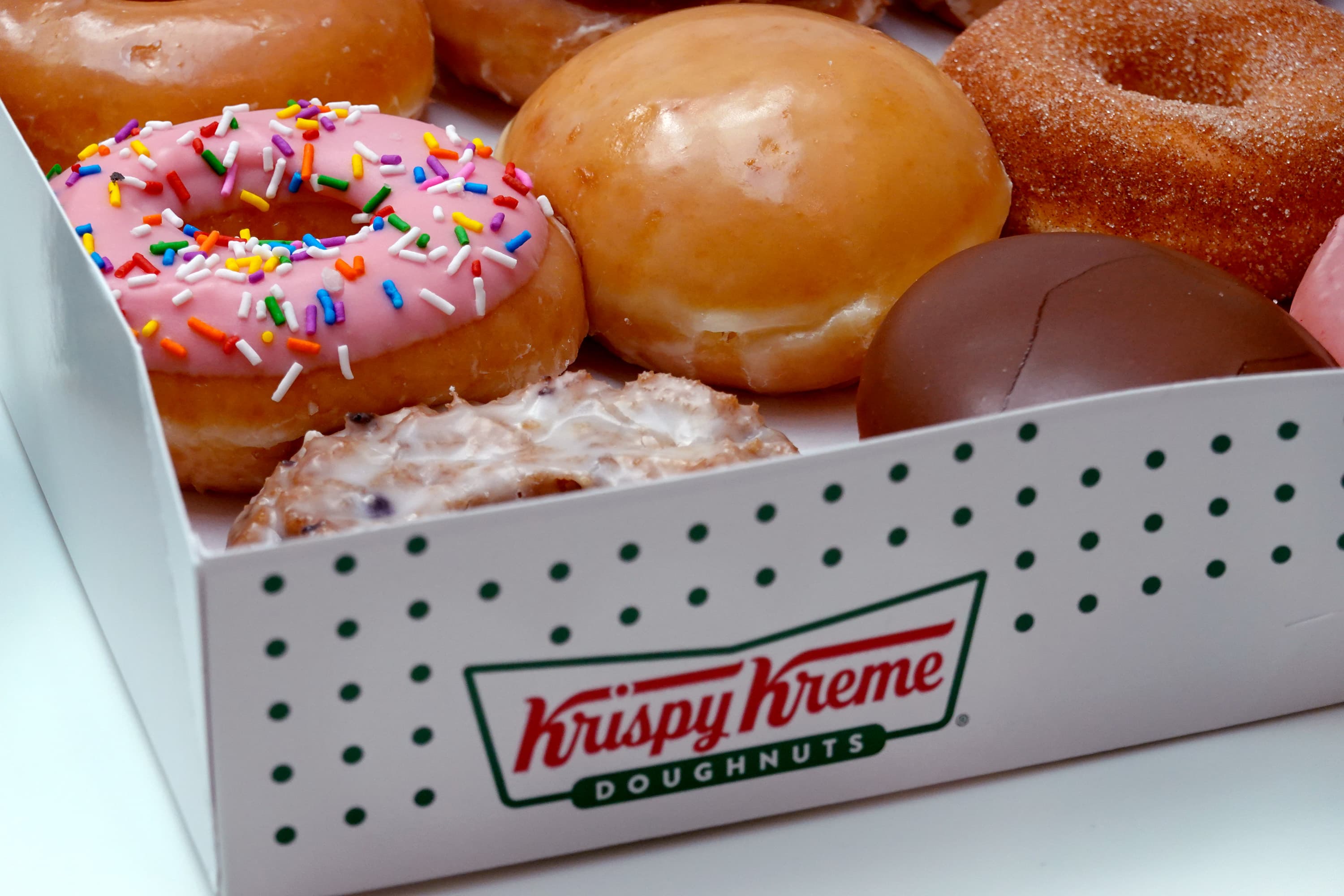Krispy Kreme on Tuesday reported its first quarterly profit since going public again but fell short of Wall Street’s expectations for its earnings.
Shares of the doughnut company rose nearly 2% in premarket trading. Since its initial public offering in July, the stock has struggled, falling 33%.
Here’s what the company reported compared with what Wall Street was expecting, based on a survey of analysts by Refinitiv:
- Earnings per share: 8 cents adjusted vs. 9 cents expected
- Revenue: $371 million vs. $364 million expected
Krispy Kreme reported fourth-quarter net income of $4.3 million, or 1 cent per share. A year ago, its quarterly net income was not meaningful, according to the company’s release.
Excluding items, the company earned 8 cents per share, missing the 9 cents per share expected by analysts surveyed by Refinitiv.
CEO Mike Tattersfield said in an interview that Krispy Kreme, like the broader restaurant industry, is seeing labor and commodity inflation, although it’s able to hedge against higher ingredient costs. The cost of sugar, wheat and oil make up about 12% of the company’s sales, and he said that the company has pricing power, too.
In the fourth quarter, Krispy Kreme raised prices twice. Compared with the year-ago period, the company’s prices are now up by the high-single digits worldwide, according to Tattersfield.
“We still seeing pricing as an opportunity,” he said.
Net sales rose 13.8% to $371 million, beating expectations of $364 million. Organic revenue climbed 13.9% compared with the year-ago period and 15.9% on a two-year basis.
Tattersfield credited strong Halloween and holiday demand for the company’s strong sales growth. Looking ahead to the first quarter, he said Valentine’s Day also saw robust sales. The February holiday is typically the company’s biggest day for sales.
“Our brand doesn’t tend to be a daily ritual,” Tattersfield said. “It tends to be at a gathering.”
For 2022, Krispy Kreme is anticipating net revenue growth of 11% to 13%, in line with Wall Street’s expectations. But its outlook for adjusted earnings per share of 38 cents to 41 cents fell short of analysts’ expectations of 45 cents per share.
